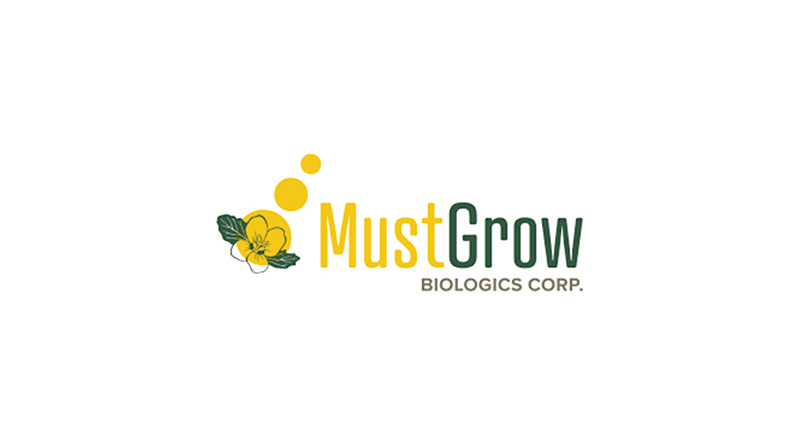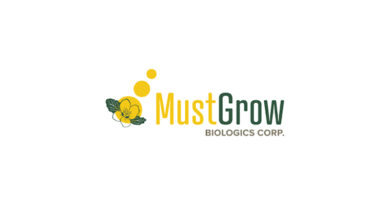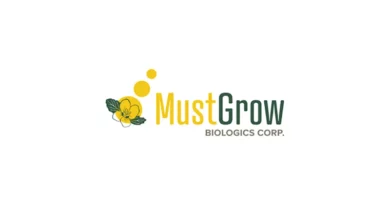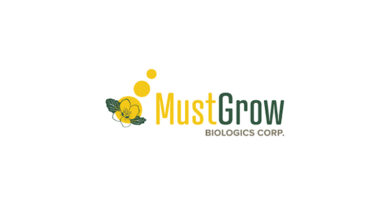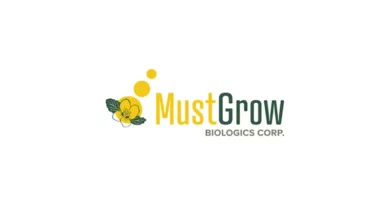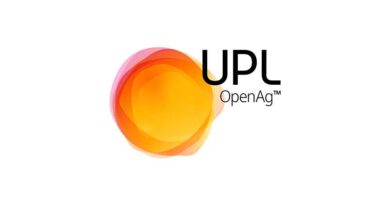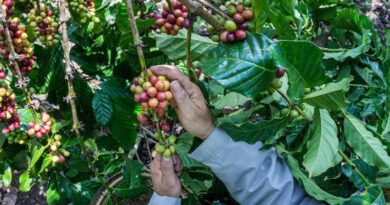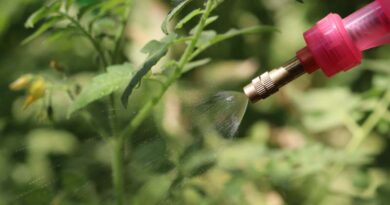MustGrow Announces Soil Amendment and Biofertility Programs for Sustainable Agriculture
18 April 2023, Canada: MustGrow Biologics Corp., is pleased to report an additional area of sustainable agriculture opportunity that the Company will be pursuing in the soil amendment (“Soil Amendment”) and biofertility (“Biofertility”) marketplaces. MustGrow’s Soil Amendment and Biofertility development programs will focus on soil and soil microbiome health, nutrient and water use efficiencies, and plant yields.
Throughout 2022, MustGrow engaged in extensive market research, formulation activities, and prospective partnership discussions, and has now added Soil Amendment and Biofertility programs to its growing list of global target applications, which now covers: preplant soil fumigation (under the brand name TerraMGTM), postharvest food preservation and bioherbicide (together “Biocontrol”), and now Soil Amendment and Biofertility applications.
MustGrow believes this Soil Amendment and Biofertility initiative will complement its existing Biocontrol programs in preplant soil fumigation, postharvest food preservation, and bioherbicide, all of which are currently under development with four global partners: Janssen PMP, Bayer, Sumitomo Corporation, and NexusBioAg. These partnered programs continue to achieve performance milestones and expand globally in scope and investment. MustGrow believes 2023 will be a pivotal year for commercial and strategic advancement in certain regions and crops.
Introducing TerraSanteTM for Soil and Ecological Health
Soil is a farmer’s most valuable and precious asset, and MustGrow’s plant-based technologies are being developed to improve not only the health of the soil, but also the surrounding ecological environment.
As a soil conditioner in mixable form, TerraSanteTM contains nutritious plant proteins and carbohydrates that feed soil microbes, potentionally improving beneficial microbial activity and ensuring long-term sustainable soil health. These targeted micro-communities are shown to work to improve nutrient availability, which can potentially increase plant vigor and yields, while reducing plant stress. TerraSanteTM has the potential to improve crop nutrient uptake and, hence, overall crop performance. There are no artificial additives or preservatives used during manufacturing.
MustGrow is initially pursuing TerraSanteTM branded registrations in North America for Soil Amendment applications, followed by formulations and brands targeting the Biofertility markets. The Soil Amendment and Biofertility products will utilize multiple technologies derived from novel plant-based extracts from mustard and potentially other sources.
Soil Amendment and Biofertility Marketplace
The global fertilizer market is anticipated to be US$242 billion by 2030, up from US$193 billion in 2021 (2.5% CAGR).(1) This aggregate fertilizer figure includes the following sub-markets, which MustGrow will target with TerraSanteTM and potentially other branded products:
- Soil Amendment: estimated market size in 2022 was US$3.5 billion and is expected to be US$8.0 billion by 2030 (11.0% CAGR).(2)
- Biofertility: estimated market size in 2021 was US$2.7 billion and is estimated to be US$7.0 billion by 2030 (12.3% CAGR).(3)
Combined, these additional market segments add over US$15 billion of target market opportunity globably for MustGrow by 2030, almost double from the initially targeted Biocontrol market.
Alternatives to Synthetic Fertilizers are Needed
With the world’s population expanding, improving agriculture production and ensuring global food security are becoming increasingly important. Fertilizers continue to play a critical role in agriculture, although plans to reduce their use have been amplified in recent years in order to implement emission reduction strategies and minimize the negative consequences of climate change. Canada, for example, has set a voluntary national fertilizer emissions reduction target of 30% below 2020 levels by 2030 to lower greenhouse gas emissions. Sustainable, climate-friendly solutions will be required to offset this reduction while balancing the nation’s economic health, since, in Canada alone, the fertilizer industry directly and indirectly supports over 76,000 jobs and contributes nearly C$13 billion to Canadian GDP.(4)
The European Green Deal is also targeting a 20% reduction in fertilizer use by 2030, while ensuring no deterioration in soil fertility, as part of the European Commission’s aim to reduce nutrient losses by at least 50% by 2030.(5) Fertilizer reduction is a key element of the broader Green Deal target of a minimum 55% net reduction in greenhouse gas emissions by 2030.(6)
Weighing fertilizer reduction targets against the need to increase farm production, farm profitability, economic growth and global food security points to sustainable Soil Amendment and Biofertility innovation and development as a key agriculture solution.
(For Latest Agriculture News & Updates, follow Krishak Jagat on Google News)

